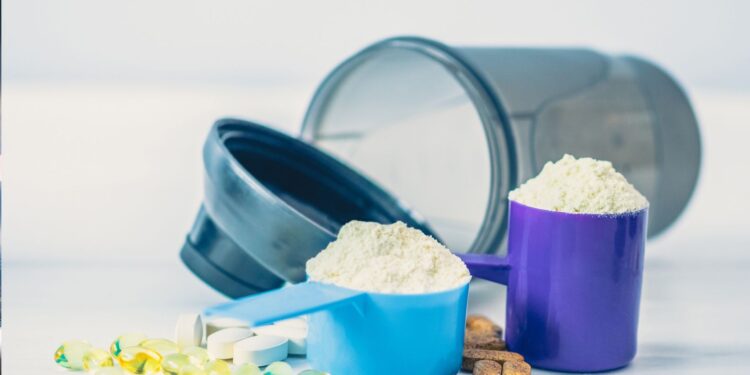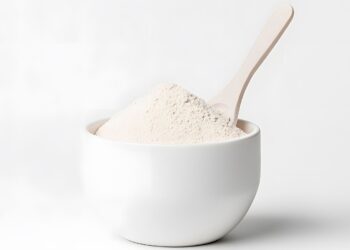Protein supplements are popular among fitness enthusiasts looking to build muscle, strength, and improve performance. With so many options on the market, it can be overwhelming trying to decide which protein supplement is right for you. Click here to read the full article and discover key factors to consider when selecting a protein supplement to help you make an informed decision.
1. Your Goals
The first thing to think about is what you hope to achieve by taking a protein supplement. Are you looking to build lean muscle mass? Improve strength for a certain sport? Support workout recovery? Maintain muscle as you age. Different protein supplements are formulated to support different goals. Whey protein concentrates contain high levels of branched-chain amino acids, making them ideal for building muscle. Casein protein digests slower, so it’s great when taken before bed to provide a steady supply of amino acids as you sleep and recover. Knowing your objectives will help narrow down protein options.
2. Protein Source
There are several sources of protein used in supplements, each with its own advantages. Whey protein comes from milk and contains all the essential amino acids needed to stimulate muscle protein synthesis. It’s absorbed quickly, making it useful pre- and post-workout. Casein protein is also dairy-based but digests slower than whey. Plant proteins like soy, pea, and hemp are suitable options for vegans/vegetarians or those with dairy sensitivities. Egg white protein is an extremely pure source that’s rapidly digested. Consider how well you tolerate different protein sources when deciding which to take.
3. Protein Content
Pay attention to the amount of protein per serving listed on the label. For building muscle, aim for at least 20-30 grams of protein per serving. Lower protein content means you may need to take more servings to meet your daily protein needs. Whey protein concentrates contain 80% or more protein by weight whereas whey isolates are 90%+ protein. Isolates contain more pure protein by weight but can be pricier.
4. Processing Method
Manufacturing processes affect protein quality. Cold processing involves minimal heat to preserve the natural structure of amino acids. Denatured proteins are exposed to prolonged high heat, modifying their structure.

This can lower the digestibility and availability of amino acids. Cold-processed proteins are preferable for maximizing muscle protein synthesis support. Also, look for supplements free of excess fillers, flavors, preservatives, and artificial sweeteners.
5. Independent Testing
Reputable protein powder manufacturers in the USA ensure their products undergo independent third-party testing to verify label claims and check for contaminants. Look for brands that provide Certificates of Analysis from labs like NSF International, Informed Choice, USP, or Banned Substances Control Group. This ensures the supplement contains the stated protein content and is free of impurities. Avoid protein products that don’t provide third-party testing results.
6. Mixability and Taste
Consider when and how you plan to consume the protein shake. Are you mixing it with water or milk? Do you care about flavor options or smooth texture? Soy and egg proteins generally don’t dissolve as easily as whey or milk proteins.

Try samples to determine mixability and taste preferences before buying a large tub. Look for brands with good flavor variety so you don’t get tired of drinking the same taste daily.
7. Price and Value
Don’t just compare prices per pound or kg. Compare the cost per serving and grams of protein provided. Higher purity isolates or premium grass-fed proteins cost more but deliver more protein per serving. Large bulk tubs are more economical for regular use. Get the most value by determining the cost per gram of protein and choosing an appropriately priced size. Consider your budget but focus on quality too.
Special Considerations for Females
When it comes to protein supplementation, females should take into account how their goals and protein needs differ from males. Research shows that women naturally tend to build muscle at a slower rate compared to men. Therefore, when choosing a protein powder, women should ensure they are consuming adequate protein relative to their body weight and fitness regimen to see their desired results. Some protein powders are formulated specifically for women, with lower calorie content or collagen additives to support beauty goals like hair, skin, and nail health. Additionally, women lose muscle mass at an accelerated rate during aging compared to men, so maintaining adequate protein intake from foods or supplements becomes particularly important with age. Overall, understanding how females build and maintain muscle can help guide more tailored protein supplement choices.
With a wide range of protein supplement types and brands available, take time to carefully consider your individual goals, dietary preferences, and budget. Look for clean formulas from transparent brands that undergo third-party testing. Sample different proteins to find ones that mix and taste well for you. Aim for at least 20g of protein per serving to support muscle growth. Read labels and compare values based on protein content. Making informed decisions will help you choose a quality protein powder to successfully complement your fitness routine and nutrition goals.







